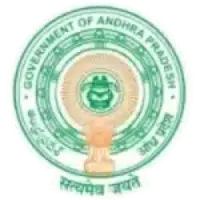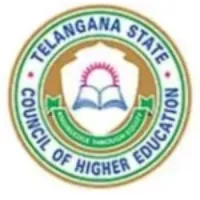Latest Applications Open 2024:
AP PGECET 2024 Geo Engineering & Geo Informatics Syllabus has been Available now. AP PGECET (Andhra Pradesh Post Graduate Engineering Common Entrance Test) for Geo Engineering & Geo Informatics is an important examination for postgraduate students. It allows aspiring geoscientists and geoinformatics professionals to gain admission to reputable institutions in Andhra Pradesh.
The Geo Engineering & Geo Informatics program encompasses various aspects of geosciences, including geology, geophysics, and geographic information systems (GIS). Students in this field learn to apply scientific principles and advanced technology to address geological and environmental challenges.
AP PGECET’s Geo Engineering & Geo Informatics entrance exam evaluates candidates’ knowledge of geological concepts, data analysis, spatial mapping, and GIS applications. Success in this exam opens doors to various exciting career opportunities, including geological research, environmental management, and geospatial analysis. Candidates should thoroughly study the prescribed syllabus and practice with sample papers.
AP PGECET 2024 Geo Engineering & Geo Informatics Syllabus – Available
AP PGECET 2024 Geo Engineering & Geo Informatics Syllabus has been Available now. Click to Download Syllabus PDF.
Engineering Mathematics
Engineering Mathematics is a fundamental and crucial component of engineering education. It provides the mathematical foundation necessary for solving complex engineering problems and developing innovative solutions. This discipline covers various mathematical concepts, including calculus, linear algebra, differential equations, probability, and statistics, tailored to address engineering challenges. Engineers rely on these mathematical principles to analyze and design systems, structures, and processes in various engineering fields. Proficiency in engineering mathematics is essential for engineers to excel in their profession and contribute to technological advancements.
Linear Algebra: Matrix algebra, Systems of linear equations, Eigen values, and Eigen vectors.
Latest Applications For Various UG & PG Courses Open 2024
-
- Parul University | Admissions Open for All Courses 2024. Apply Now
- Chandigarh University | Admissions Open for All Courses 2024. Apply Now
- IIAD, Delhi | Admissions Open for All Courses 2024. Apply Now
- GIBS, Bangalore | PGDM Applications Open. Package upto 15.5 LPA. Apply Now
- GNIOT, Greater Noida | Admissions Open for All Courses 2023. Apply Now
- The Design Village | Admissions Open for All Courses 2024. Apply Now
- IMS Ghaziabad UC Campus | Admissions Open for All Courses 2024. Apply Now
- KIIT School of Management | Admissions Open for All Courses 2024. Apply Now
- KSRM | Admissions Open for All Courses 2024. Apply Now
- Jaipuria Institute of Management | Admissions Open for All Courses 2024. Apply Now
- NIIT | Admissions Open for All Courses 2024. Apply Now
- MITWPU | Admissions Open for All Courses 2024. Apply Now
- KL University | Admissions Open for All Courses 2024. Apply Now
- Alliance MBA | Admissions Open for All Courses 2024. Apply Now
- Alliance UG | Admissions Open for All Courses 2024. Apply Now
- GD Goenka | Admissions Open for All Courses 2024. Apply Now
Calculus: Functions of a single variable, Limit, continuity, and differentiability, Mean value theorems; Evaluation of definite and improper integrals, Partial derivatives, Total derivatives, Maxima and minima, Gradient, Divergence and Curl, Vector identities, Directional derivatives, Line, Surface and Volume integrals, Stokes, Gauss, and Green’s theorems.
Complex Variables: Analytic functions, Cauchy’s integral theorem, Taylor and Laurent series.
Probability and Statistics: Definitions of probability and sampling theorems, Conditional probability, Mean, median, mode and standard deviation, Random variables, Exponential, Poisson, Normal and Binomial distributions.
Geo-Engineering: Continents. Earth composition. Earth – Orbit, Oceans – Depth, Bottom, Relief
Rocks: Kinds of rocks (Igneous, Sedimentary, Metamorphic Rocks origin, and classification) Minerals (Silicate Minerals and Non Silicate Minerals) & physical properties of minerals.
Surveying methods: Topographic surveying, Theodolite applications, topographic sheets, aerial photo formats. Maps: Types of photographs: vertical and oblique photographs. Aerial cameras: lens, optical axis, focal length, focal plane, and fiducial marks; Principal Point; Geometry of vertical photographs map projections, fundamentals of cartography.
Physical principles of remote sensing, electromagnetic spectrum
The study of remote sensing relies on the fundamental principles of physics, particularly those related to the electromagnetic spectrum. Remote sensing involves detecting and interpreting electromagnetic radiation from Earth’s surface and the atmosphere. The electromagnetic spectrum, comprising various wavelengths of energy, is the foundation of remote sensing technology, enabling us to capture valuable information about the Earth’s features and processes from a distance. Understanding these physical principles is essential for harnessing remote sensing techniques in applications such as environmental monitoring, agriculture, urban planning, and disaster management.
Electro Magnetic Radiation (EMR): Velocity of EM radiation, Propagation of EM waves, Fundamentals
Of Radiometry: Measure Geometry-concept of the solid angle, radiometric quantities, classification of Remote sensor, selection of sensor parameters, spatial resolution, spectral resolution, radiometric resolution, Temporal resolution Optical and Infrared Microwave sensors Sun-synchronous and geosynchronous satellites –Land coverage – Repetitivity – Along track and Across track stereovision Capability. IRS, LANDSAT, SPOT, CANADA, JAPAN, EUROPEAN, Satellite series.
Latest Applications For Various UG & PG Courses Open 2024
-
- Parul University | Admissions Open for All Courses 2024. Apply Now
- Chandigarh University | Admissions Open for All Courses 2024. Apply Now
- IIAD, Delhi | Admissions Open for All Courses 2024. Apply Now
- GIBS, Bangalore | PGDM Applications Open. Package upto 15.5 LPA. Apply Now
- GNIOT, Greater Noida | Admissions Open for All Courses 2023. Apply Now
- The Design Village | Admissions Open for All Courses 2024. Apply Now
- IMS Ghaziabad UC Campus | Admissions Open for All Courses 2024. Apply Now
- KIIT School of Management | Admissions Open for All Courses 2024. Apply Now
- KSRM | Admissions Open for All Courses 2024. Apply Now
- Jaipuria Institute of Management | Admissions Open for All Courses 2024. Apply Now
- NIIT | Admissions Open for All Courses 2024. Apply Now
- MITWPU | Admissions Open for All Courses 2024. Apply Now
- KL University | Admissions Open for All Courses 2024. Apply Now
- Alliance MBA | Admissions Open for All Courses 2024. Apply Now
- Alliance UG | Admissions Open for All Courses 2024. Apply Now
- GD Goenka | Admissions Open for All Courses 2024. Apply Now
GIS Concepts
Geographic Information System (GIS) Concepts involve the study of tools and techniques used to capture, analyze, and visualize spatial data. GIS is a powerful technology that enables us to understand and interpret our world through geographic data. These concepts encompass data layers, spatial relationships, map projections, and geospatial analysis, making GIS a crucial tool in various fields, including urban planning, environmental management, and disaster response. Understanding GIS concepts is fundamental for anyone seeking to harness the potential of geospatial data in decision-making, research, and problem-solving across diverse industries.
Components of GIS – Hardware, Software, Data Files, and Databases- Data Types Database structures – Hierarchical, Network, Relational Vector Data Structure – Vector Data Model – Arcs, Storing area–Data Base Creation – Digitizer, Topology – Euler Equation, Topological Consistency, Topological Errors, Digital Elevation Models, Data Transformation – Change in Dimensionality, Change in Position – Rubber Sheeting, Tin Sheeting – Vector to Raster, Raster to Vector Conversion Vector data – Polygon overlay, polygon statistics, Network Analysis – Non-spatial data analysis – Structured Query Language. Modeling – Definition – Spatial Modeling – External Model, Conceptual Model, Logical Model, Internal Model – GIS applications in Resource Management Data capture using GPS for GIS FM studies – Object Oriented Database Models. Recent trends in GIS and applications Study of rainfall, estimation of run-off, and evapotranspiration, water table Environment – meaning, scope, components Environments. Soils-texture,
strengths, porosity, and permeability.

As a dedicated Biology Science graduate, I’m passionate about sharing the latest updates in national and state entrance exams through my blog. I aim to keep aspiring students informed about exam trends, important dates, and changes in syllabi. With a keen interest in education, I strive to offer valuable insights for students navigating the competitive landscape of entrance examinations and admission tests. Stay updated with me.

